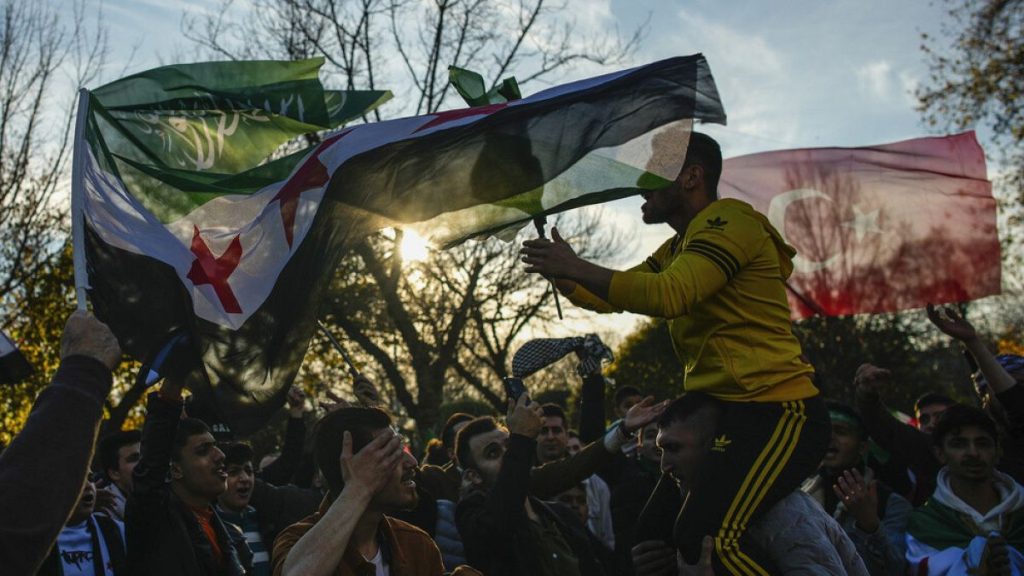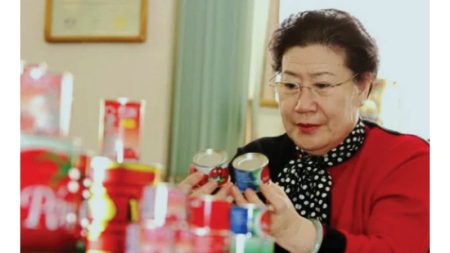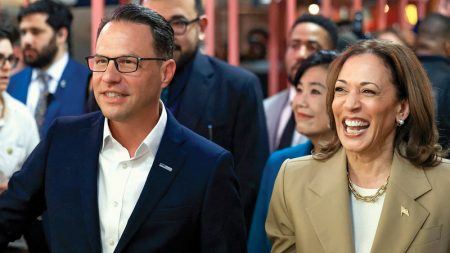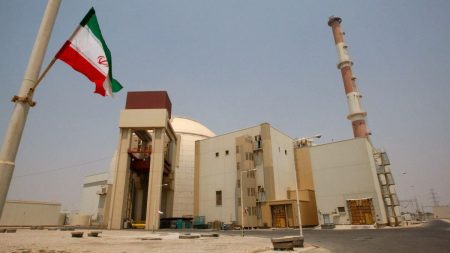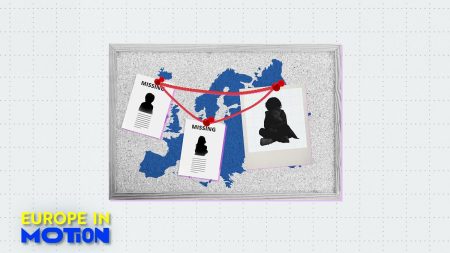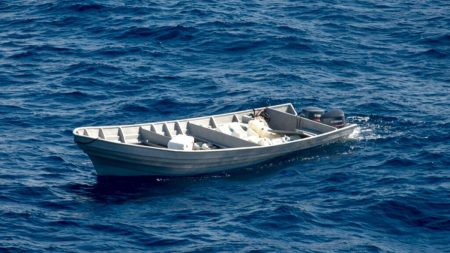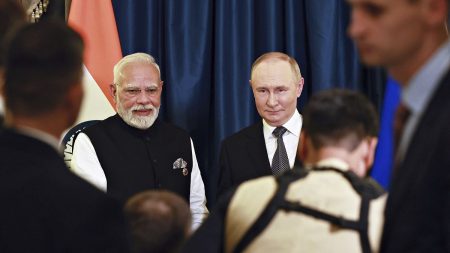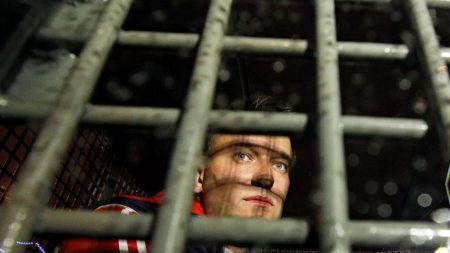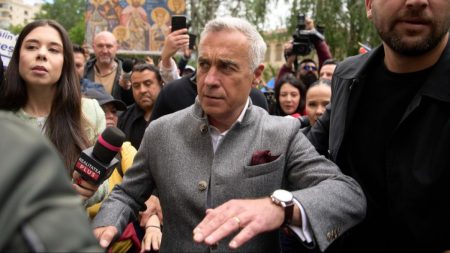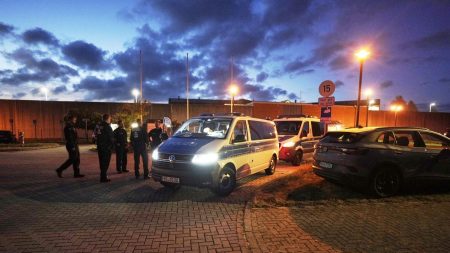Summarize this content to 2000 words in 6 paragraphs in Arabic
Thirteen years after a revolution left the Middle Eastern country in civil war and led to more than 6 million Syrians fleeing as refugees, dictator Bashar Al-Assad has been deposed. Euronews spoke to three refugees about their hopes for Syria in the coming year and their thoughts on returning.
ADVERTISEMENTMaydani, Abdulrahman, and Ahmad were all students when protests erupted across Syria and the broader region in 2011. All three of them joined the revolution, all three were imprisoned, and all three were forced to flee.“After two months of detention, I started to lose my balance. I had a very high temperature, and it was difficult to breathe because of the air in the detention centre and the amount of torture,” Maydani told Euronews, calling conditions “unbearable for a human or even an animal”.Maydani recalls his release after months at a military prison in the Kafr Sousa district of Syria’s capital Damascus. “My father helped get me out of detention. Otherwise, I would have become one of the unidentified corpses.”Even after his release, Maydani was gripped by fear of re-arrest. “They put you in prison … and then they bury you in one of the mass graves and no one from your family can know about you, not even a word,” he said. “I hid at home under constant terror. I could never leave the house.”It’s a sentiment echoed by Abdulrahman. “When I got out of prison, I was always afraid to walk in the street so that they would arrest me, that they would take me to prison for no reason,” he told Euronews. “I felt that I was living in a prison, there was no freedom, no dignity.”Ahmad, released after three months “in a miracle,” said he “was advised to leave the country directly but wanted to finish university.” Maydani also remained long enough to complete his studies. Abdulrahman left straight after he was freed.The journey outAfter fleeing Syria, Maydani, Abdulrahman and Ahmad all passed through multiple countries, notably Turkey, where Abdulrahman eventually settled along with the vast majority of other Syrian refugees — more than 3.3 million, according to UN figures.Maydani and Ahmad both made the perilous Mediterranean Sea crossing, which took over a week in Ahmad’s case. While Maydani ended up as one of over 100,000 Syrian refugees in Sweden, Ahmad travelled from Italy to settle in Germany, which welcomed up to 850,000 Syrian refugees, by far the highest number of any European country.“I’m really grateful for being here and for the German people who helped me,” Ahmad said, smiling and adding he’s had a “very, very positive” experience in Germany, where he continued his studies, got married, and became a teacher. After teaching in Turkey, Abdulrahman joined the news agency Al Jazeera, becoming an editor.For Maydani, it was a trickier experience. “There was no one to teach us the laws, the language is different. What we studied, everything we accomplished in our lives meant nothing and we went back to square one.” Having trained as a dentist, Maydani now lives with his wife and children and runs a taxi company while his partner is retraining as a dentist.None of the three were sure they would ever see the fall of al-Assad nor return to Syria. ADVERTISEMENT“I never expected that anyone would be able to bring it down,” exclaimed Maydani. “There was no unified leadership. Each faction leader wanted to be the president. I lost hope, frankly, and I stopped following the news”.However, as the HTS-led rebel group launched a coordinated offensive and took Aleppo, Syria’s second-largest city, this all changed. “I was completely unable to concentrate, if someone greeted me, I would say hello, but I didn’t listen. I was driving the car, and I hit the pavement, and the car’s tyre was torn off, it broke,” Maydani said.ADVERTISEMENTAbdulrahman was surprised, if less effusive. “I had no hope that power would change in the near future. I was happy, of course. I was unable to eat or sleep well for a week.”Despite his hopes, Maydani describes how “the fear was always there until the last moment.” His family in Damascus “were afraid that there would be massacres, and the regime would throw explosives and burn Damascus and destroy it.”However, when HTS officially took Damascus, they were happy. “When they said on TV that the al-Assad regime has fallen in Syria, it made me feel happy as if I was feeling it for the first time. Every time I see this sentence, it’s as if I’ve just heard it for the first time,” said Maydani.ADVERTISEMENTThe calm after, or before the storm?A month ago, the name Hayat Tahrir Al-Sham (HTS) was relatively unknown in international circles, as was that of its leader Ahmed al-Sharaa. Yet, since it has taken control of Syria, the organisation and its leader’s chequered past have been put under the spotlight.Originally formed as a merger of multiple Sunni conservative ‘Islamist’ rebel groups from northwestern Syria in 2017, HTS was soon designated as a terrorist group by multiple countries and organisations, including the UN, the EU, and the US, who regularly launched airstrikes against it.Its leader, al-Sharaa, is an ex-al-Qaeda fighter who adopted the nom de guerre Abu Mohammad al-Jolani, a reference to his native Golan Heights, which has been under Israeli occupation since the 1967 war. Since marching to victory in December, HTS has been trying to play down its controversial past and present itself as inclusive and moderate. In a recent interview with the BBC, Al-Sharaa talked of reaching out to Syria’s minorities, who make up over a quarter of the population, including Christians and Alawites.ADVERTISEMENTHe also insisted he supported women’s rights. “We’ve had universities in Idlib for more than eight years, I think the percentage of women in universities is more than 60%,” he said, referring to the province HTS has controlled for years. Not everyone is convinced. A group of more than 300 Syrian women sent a letter to UN General Secretary Antonio Gueterres stating, “we do not accept the stark absence of women leaders in the transitional government or to be excluded from international discussions.”Speaking to Euronews, Cambridge University academic and former UN lawyer in the region Victoria Stewart-Jolley was even more blunt. “The government which has taken over is pretty much the same as the Taliban,” she said. “Nobody believes they’re going to be moderate.” ADVERTISEMENT‘We are at the beginning’Ahmad and Abdulrahman both recognise the fears around HTS, with Ahmad admitting he was hopeful but “a little bit worried” about developments. “I did not support the HTS’s ideology and I used to see it as harmful to the Syrian revolution,” Abdulrahman said, but insisted, “now its ideology has changed”.He maintains that HTS won’t be given free rein. “We are giving HTS a chance for three months to run the country, but after three months there will be elections for the government, for the presidency.” Shortly after the BBC interview, al-Sharaa suggested elections could take up to four years.ADVERTISEMENTMaydani also worries that the civil war isn’t over because proxies continue to back local groups, including the US-backed Kurds to the north. However, his mood overall is buoyant. “I am very happy, and until now Ahmed al-Sharaa is doing a very good job for the country.”On the possibility of returning to Syria, all three plan to return in the coming weeks to visit for the first time and believe “millions” of refugees will return eventually to Syria. About 70% of Syrian refugees still live in poverty. However, none have immediate plans to relocate, given the 13 years of civil war that have ravaged the country. “70% of Syria is destroyed, entire neighbourhoods, entire areas, all the buildings are destroyed, completely unfit for life. So, if these people return, where will they live,” Maydani asked.Ahmad also pointed out that many refugee children left Syria before they could really feel rooted. “They don’t have any memories … they don’t have any idea about the country,” he said.ADVERTISEMENTYet these aren’t insurmountable issues, according to Maydani. “It needs time, we are here now at the beginning,“ he said.
rewrite this title in Arabic ‘Joy and fear’: Syrian refugees ponder what 2025 holds for their homeland
مقالات ذات صلة
مال واعمال
مواضيع رائجة
النشرة البريدية
اشترك للحصول على اخر الأخبار لحظة بلحظة الى بريدك الإلكتروني.
© 2025 جلوب تايم لاين. جميع الحقوق محفوظة.




